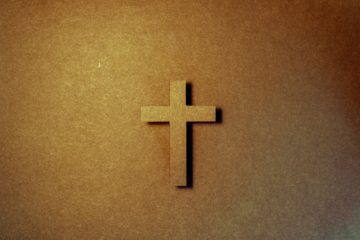Verse: Exodus 16:11-12
11 And the Lord said to Moses, 12 “I have heard the grumbling of the people of Israel. Say to them, ‘At twilight you shall eat meat, and in the morning you shall be filled with bread. Then you shall know that I am the Lord your God.’”
Devotional Thoughts:
I want to begin with a question for you today – what is it that you’re afraid of? And I’m not necessarily talking about snakes, mice, etc. I want us to move deeper than simply those fears, and move to deeper fears that we commonly experience. These deeper fears become more than something we’re afraid of. They become things that we worry over, have lasting anxiety over, things that stress us out.
Exodus 16 finds the Israelites journeying in the wilderness. They were grumbling against Moses, and claiming that they were better off in Egypt because they actually had food to eat.
But what I want you to see is how this is their fear talking. At every step along this journey, they’ve been afraid of something. First, it was fear that they would live their entire lives in slavery for Pharaoh. Then, when God promised to lead them out of Egypt, their fear shifted from being life-long slaves in Egypt, to Pharaoh killing them outright for trying to leave. Now they’re afraid that they’re going to die of hunger in the wilderness.
Notice how, in the verse above, God reorients their viewpoint. He draws their attention back to himself.
And this brings me to the main point that I want to make:
The only thing that will end our fears is a greater fear – the fear of God.
But what does the fear of God mean? We’ve probably all heard a movie line or something where someone says, “I’m going to put the fear of God in you.” The very phrase “fear of God” makes it sound like we ought to be afraid of God.
But that’s not what the Bible means when it says to fear God. Billy Graham describes it like this:
To fear God is to have a deep reverence for him, and to stand in awe at his holiness and majesty and power and love. Only then will we love and serve and worship him as we should.”
Points to Ponder:
A couple years ago, when I was living in Yellowstone, my sister Brooke and I would occasionally go hiking when we had the time. Now the area we were hiking in was known as grizzly bear country in the park – in fact, our campground opened weeks after the rest of the park campgrounds opened, just because of the amount of grizzly bears in the area.
Brooke was afraid of grizzly bears – she really didn’t want to run into one while we were out hiking. I was afraid of running into one too – anyone would be. Fortunately, we never did.
But suppose we did run into a grizzly. The one thing that was stressed to us is to NOT run. We were told that if we run, they will chase. And they are faster. So we were leaving for a hike one afternoon and Brooke told me, “Zac, if I see a bear, I will take off running. I know they told us not to run, but I plan on running.”
Now, imagine that hypothetical situation from my perspective. We stumble upon a grizzly. Both Brooke and I stand there terrified. Brooke takes off running. The grizzly chases after her. Now, yes I’m scared of that bear, but I also know that, given the situation, an even greater fear would kick in. I’d be even more afraid of what that bear would do to Brooke if he caught up with her. And so, with the situation playing out like that, I would have no choice but to go and tackle that grizzly bear. There would be a greater fear that supersedes my fear of the grizzly.
Our fear of God is a fear that supersedes all our other fears too. That fear of God isn’t the kind of fear that says “Oh God is scary,” but rather reorients our focus so that we realize how great and mighty and awesome God is and also realize how much he cares for his people. And that means we realize how much he cares for us. It’s the kind of fear that brings about awe and trust and love.
Where is your focus? What is it that you’re afraid of – what stresses you out? How does your viewpoint need to be reoriented?


